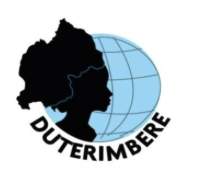Women own and appreciate Technology in Agriculture. Impressive on how rural women in Rwanda are recognized as producers, suppliers/traders and facilitators of horticulture planting materials in Rwanda.






Establishing Poor Women’s Economic Leadership in
Rwanda’s Horticulture Value Chain
Through Women as the lead suppliers of planting material in the country
Background:
The Rwandan rural setting is characterized by extreme land scarcity (average 0.7ha/hh) and limited diversification. About 60% of the population survives on less than US$1 per day. Over 90% households have agriculture as a major source of livelihood. Rwanda ranked 152 out of 169 countries on the Human Development Index (UNDP 2010)[1].
The country has a 53% female population and nearly one-third of households are women headed (mainly widows / single women). The issue of gender inequality is quite evident in agriculture produce value chains where women are most often employed in labour intensive and low value added activities.
In its Vision 2020 plan, the country has planned to transform the economy into a middle income country. Transforming agriculture into a productive, high value, market oriented sector one of its core strategies. The Government has targeted horticulture as a means to achieve this transformation, considering potential to generate much higher levels of income and employment.
Experience of Rwanda Programme in Horticulture value chains:
Rwanda programme focuses on developing women’s economic leadership and private sector engagement as its strategy to influence the Government’s EDPRS and Vision 2020. The work initiated with pineapple and mushroom value chains is focused on input supply and post production. The first option emphasizes on the development of women’s leadership in planting material production and supply whereas the latter stresses on engaging small holders and women producers in to the supply chain of private sector companies. The programme has helped women to associate with enterprises in pineapple planting material production and initiated the process for linking small producers with private sector companies involved in pineapple drying and mushroom marketing. It is simultaneously working on developing middle range financial products to facilitate women entrepreneurs and small private sector companies to move up in the value chain while benefiting small producers.
The Government of Rwanda is promoting horticulture plantation on a larger scale. However there are serious limitations in terms of the availability of true-to-type planting material. The process for production of planting material and linking with cultivators is not developed. As a result, farmers resort to nearby countries to get some planting material or use whatever is available without looking at the quality. This has resulted in serious pest spread for key planting material.
The country’s premier research institute, ISAR[2] has developed a method of macro-propagation for multiplication of planting material like banana and pineapple (technique suitable for women to develop micro and small enterprises). They have also collected/developed export quality varieties of mango, avocado, pineapple and banana. Duterimbere ONG team under Oxfam funded project is closely engaged with ISAR and facilitated technology transfer – macro-propagation of pineapple planting materials and passion fruit grafts. More than 800 women are involved in pineapple and passion fruit grafts planting material production and supply. They have taken more than GBP 40,000 loan from MFI to develop the enterprises. There is a huge local demand for the horticulture planting materials and women are directly marketing their inputs.
Recently the Rwanda programme has planned to work on potential segments of entire horticultural value chain. To support this effort, developing enterprises for planting material production and supply across horticultural value chain provides tremendous opportunities to make women’s role visible as key stakeholders in the value chain.
Project Objectives:
To develop women’s economic leadership in horticultural value chain by
- Developing women as micro and small business entrepreneurs in Horticulture planting material production and supply
- Creating women as traders in plant material supply business
- Establishing women as facilitators of farmer field schools for technology transfer and accredited source of quality planting material supply
[1] hdrstats.undp.org/en/countries/profiles/RWA.html, International Human Development Indicators, UNDP
[2] ISAR – Institut des sciences agronomiques du Rwanda

Comments are closed.